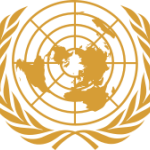- Sektör: NGO
- Number of terms: 31364
- Number of blossaries: 0
- Company Profile:
The United Nations Organization (UNO), or simply United Nations (UN), is an international organization whose stated aims are facilitating cooperation in international law, international security, economic development, social progress, human rights, and the achieving of world peace.
Strategy relying on natural mortality factors, such as natural enemies, weather and crop management, that seeks to promote tactics that disrupt these factors as little as possible while enhancing their effectiveness.
Industry:Environment
Environmental problems that result from the lack of development rather than from the development process itself. These problems include poor water quality, inadequate housing and sanitation, malnutrition and disease.
Industry:Environment
Synthetic washing agent that helps to remove dirt and oil. It may contain compounds that kill useful bacteria and encourage algae growth in receiving waters when those compounds are discharged as part of waste water.
Industry:Environment
Waste material usually generated in the residential environment. Waste with similar characteristics may be generated in other economic activities and can thus be treated and disposed of together with household waste.
Industry:Environment
Atmospheric condition caused by a layer of warm air preventing the rise of the cool air trapped beneath it. Inversion prevents the rise of pollutants that might otherwise be dispersed. See also air pollution episode.
Industry:Environment
System of cultivation in which a plot of land is cleared and cultivated for a short period of time, then abandoned and allowed to revert to producing its normal vegetation while the cultivator moves on to another plot.
Industry:Environment
Cancerous growth or malignant tumour of the epithelial tissues (the tissues forming the outer layer of the body surface and lining the whole passage along which food passes through the body and other hollow structures).
Industry:Environment
1. Increase in the proportion of a population living in urban areas; 2. process by which a large number of people becomes permanently concentrated in relatively small areas, forming cities. See also counterurbanization.
Industry:Environment
Materials contaminating the environment that cause death, disease and/or birth defects in the organisms that ingest or absorb them. The quantities and length of exposure necessary to cause these effects can vary widely.
Industry:Environment
Measure of radioactive dose/exposure. It is the quantity of X- or gamma radiation, producing ions that carry one electrostatic unit of electricity of either positive or negative charge in one millilitre (ml) of dry air.
Industry:Environment
